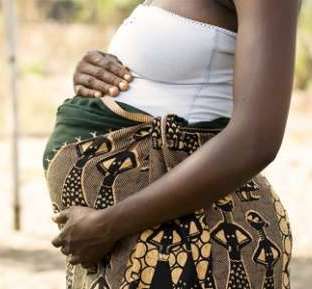Brong-Ahafo Region records reduction in maternal deaths
 The Brong-Ahafo Region recorded slight decrease in maternal deaths in 2017, Dr Kofi Issah, the Regional Director of Health, said on Wednesday.
The Brong-Ahafo Region recorded slight decrease in maternal deaths in 2017, Dr Kofi Issah, the Regional Director of Health, said on Wednesday.
Although recorded cases of maternal mortality in the region reduced from 77 in 2016 to 70 cases in 2017, Dr Issah said the reduction was insignificant.
Speaking at the 2017 Annual Review Meeting of the Directorate in Sunyani, the Regional Director said despite a reduction in still deaths from 1.5 percent to 1.3 percent within the period under review, neonatal and still deaths remain a huge challenge.
The two-day performance meeting is being held under the theme: “partnership for improved health delivery”.
Dr Issah said neonatal deaths also reduced from 8.7 per cent per 1000 births in 2016 to 5.7 per cent per 1000 births in 2017.
He said malaria case fatality rates among mothers in the region remained below target and urged mothers to sleep in mosquito treated nets.
Dr Issah said the region had been able to achieve 94.8 percent in exclusive breast feeding.
He mentioned over-aged vehicles, erratic funding, and inadequate equipment and logistics as some of the key challenges which needed urgent attention by the Directorate.
Dr Issah commended the health professionals for the high performance within the period under review and advised them to remain committed to duty.
He said the Directorate has prioritised mental health as it remained essential in the health care service delivery.
Mr Evans Opoku Bobie, the Deputy Brong-Ahafo Regional Minister, said the government recognised the challenges in the health sector, including inadequate accommodation, equipment and logistics.
He stressed the need for the Ghana Health Service (GHS) to ensure judicious use of its available resources so that the “right to health of every Ghanaian was guaranteed”.
He expressed the hope that the GHS would create resilient health delivery systems that would improve access to curative and emergency services in the region.
Mr Bobie urged the health service workers to eschew tendencies that could drive the image of the profession into disrepute.
He said government was working hard to address certain key challenges in the health sector to improve on their condition of service as well.
In a speech read for him, Dr Anthony Nsiah-Asare, the Director General of the GHS, said there is the need for the service to promote team work, quality leadership and social accountability.
He said the effective use of Information Communication and Technology would push the GHS to fulfill its mandate and achieve high performance in the health sector.
Dr Nsiah-Asare advised the health workers to work in accordance with professional ethics to achieve useful outcomes.
Mr Kwaku Agyemang-Manu, the Minister of Health, in a speech read on his behalf, called on GHS to work extra hard to reduce maternal, still and neonatal deaths in the country.
He commended the nation’s development partners for their continuous support to the health sector, saying more of such support wais needed to facilitate quality healthcare delivery in the country.
Mr Agyemang-Manu said the Health Ministry was aware of the daunting challenges that faced the GHS and lauded efforts being made by the Service to fulfill its key mandate in the midst of those challenges.
Source: GNA
